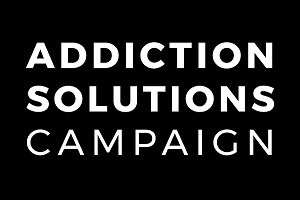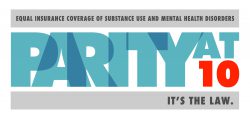 The Addiction Solutions Campaign is a consortium of the leading policy, advocacy, education and technical assistance organizations in the addiction field.
The Addiction Solutions Campaign is a consortium of the leading policy, advocacy, education and technical assistance organizations in the addiction field.
Our goal is to make a lasting and positive impact on addiction, the nation’s primary preventable health problem, through public and professional education, policy development and advocacy, and translational research in addiction prevention and treatment.
Initiatives and Reports
Opioid Settlement Priorities; Recommendations from the Addiction Solutions Campaign outlines several key strategies for investing in solutions to the opioid crisis. The report provides a clear set of recommendations that both address the immediate epidemic and create lasting changes that will change the trajectory of addiction in this country going forward.
The report highlights action in three key impact areas:
- Enhance public education to correct long-held misconceptions and create informed demand for more effective policies and interventions.
- Implement evidence-based, family and community-wide prevention and early intervention to reduce the incidence of addiction and overdose.
- Modernize addiction treatment by integrating it with mainstream healthcare and increase access to evidence-based addiction support and treatment services.
The Addiction Solutions Campaign developed these recommendations to provide clear guidance to the parties involved in current or future opioid litigation on sensible, cost-effective, evidence-based and long-lasting strategies for allocating potential settlement funds.
Parity at 10 Compliance Campaign
 Overview: Every day, more than 290 Americans will die from either a drug overdose or suicide. Many of these tragic deaths could be prevented with prompt access to comprehensive mental health and substance use disorder treatment. The Mental Health Parity and Addiction Equity Act is intended to ensure equitable insurance coverage and increase access to care for those with mental health and substance use disorders. Unfortunately, in the nearly 10 years since its enactment, insurers have not complied with the Parity Act and enforcement has been inadequate, leaving millions of Americans at risk and without the health services they pay for.
Overview: Every day, more than 290 Americans will die from either a drug overdose or suicide. Many of these tragic deaths could be prevented with prompt access to comprehensive mental health and substance use disorder treatment. The Mental Health Parity and Addiction Equity Act is intended to ensure equitable insurance coverage and increase access to care for those with mental health and substance use disorders. Unfortunately, in the nearly 10 years since its enactment, insurers have not complied with the Parity Act and enforcement has been inadequate, leaving millions of Americans at risk and without the health services they pay for.
The time has come to enforce the Parity Act.
Mission: Parity at 10 is a three-year campaign to establish effective modes for robust enforcement of the Parity Act in 10 states and to disseminate those models across the country. We seek to ensure that insurance carriers and State Medicaid programs offer fully parity compliant substance use and mental health benefits in order to ensure that consumers receive the evidence-based health care they need and are entitled to receive.
Approach: Launched in November 2017, the first year of our campaign is focused on five states: Illinois, Maryland, New Jersey, New York and Ohio.
With technical support from national parity experts, an anchor organization in each state will lead state reform efforts with local advocates. An additional five states will be added in the second year. Our work will include:
- An assessment of each States treatment delivery system and parity compliance within the private and public insurance markets;
- Public and provider education about the Parity Act;
- Advocacy for the adoption of a pre-market, prospective regulatory review process to ensure that plans comply with the Parity Act before they are sold; and
- Advocacy with legislators, regulators and Attorneys General to develop more effective parity enforcement frameworks.
The Campaign will benefit millions of people living in those states and will also establish models that can be adopted by other states.
The national partners of the Parity at 10 Campaign include all members of the Addiction Solutions Campaign as well as the Kennedy Forum.
About the Addiction Solutions Campaign
The Addiction Solutions Campaign is a consortium of the leading policy, advocacy, education and technical assistance organizations in the addiction field including Legal Action Center, Center on Addiction, Partnership for Drug-Free Kids and the Research and Evaluation Group at Public Health Management Corporation. This group devotes its collective 125 years of experience, skills and resources to impact the nation’s primary preventable health problem through public and professional education, policy development and advocacy, and translational research in addiction prevention and treatment.
Consortium Members
Legal Action Center (LAC): Established in 1973, the Legal Action Center is the only non-profit law and policy organization in the United States whose sole mission is to fight discrimination against people with histories of addiction, HIV/AIDS, or criminal records, and to advocate for sound public policies in these areas.
Center on Addiction: Center on Addiction is a national nonprofit research and policy organization focused on improving the understanding, prevention and treatment of substance use and addiction. Founded in 1992 by former U.S. Secretary of Health, Education, and Welfare, Joseph A. Califano, Jr., our interdisciplinary experts collaborate with others to promote effective policies and practices.
Partnership for Drug-Free Kids: Partnership for Drug-Free Kids is a national nonprofit that is committed to helping families struggling with their son or daughter’s substance use. They empower families with information, support and guidance to get the help their loved one needs and deserves. They build healthy communities, advocating for greater understanding and more effective programs to treat the disease of addiction.
Public Health Management Corporation’s Research & Evaluation Group: The Research & Evaluation Group at Public Health Management Corporation (PHMC) is dedicated to helping clients understand their communities, improve their programming, and deepen their impact on public health and education. The addiction research is led by the team from the Treatment Research Institute, which became a part of PHMC in 2017. As part of PHMC, and as a member of the National Network of Public Health Institutes (NNPHI), the team partners with clients to address pressing research questions, produce science-driven evaluations, inform programming, and facilitate technical assistance and strategy development.
